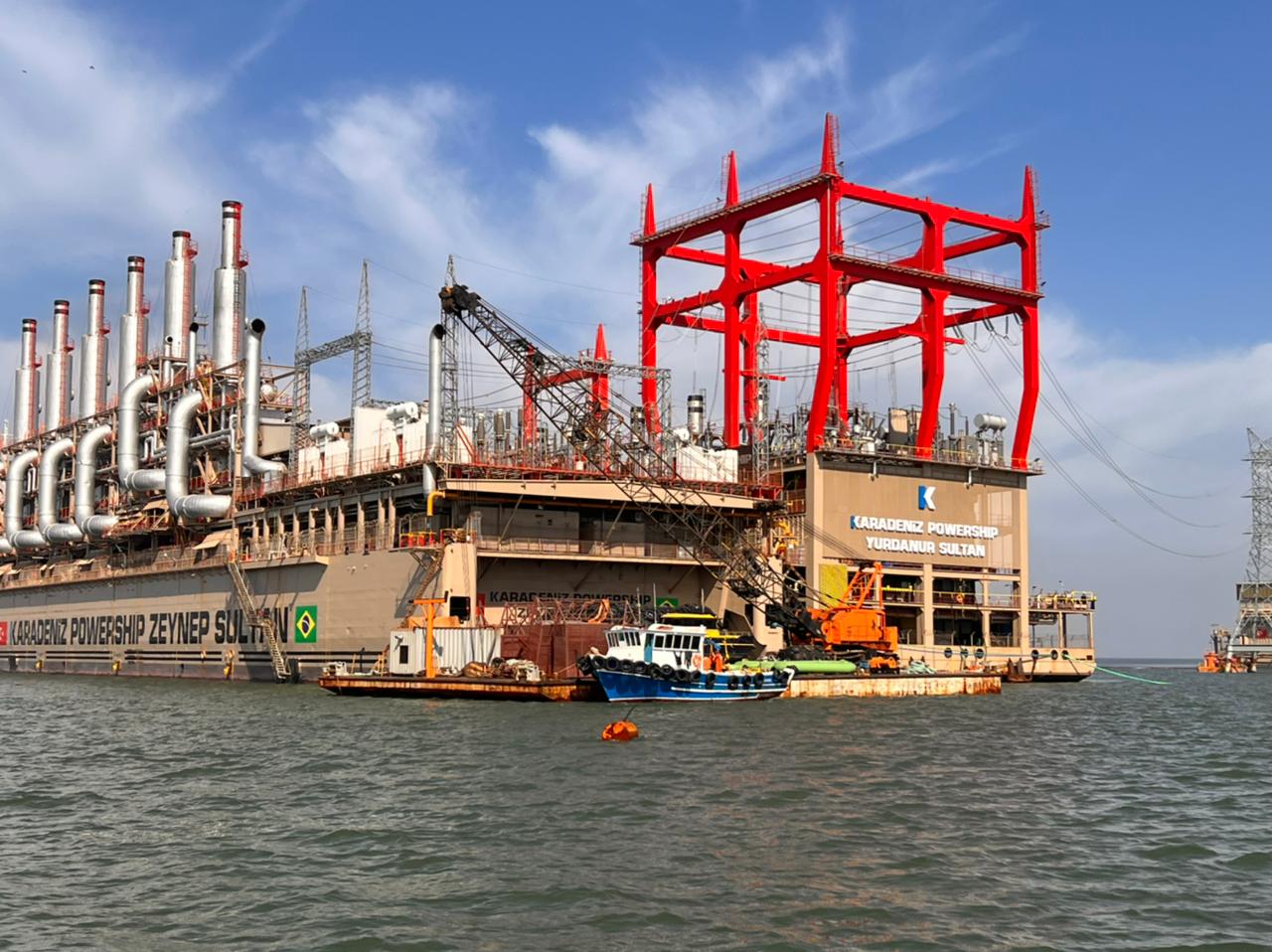The undertaking is the subject of judicial and administrative actions with the participation of the International Institute ARAYARA and the Observatório do Petróleo e Gás (OPG), due to the socio-environmental impacts on Sepetiba Bay, failure to submit an EIA-RIMA and non-compliance with the rules of the bidding notice
The decision by the National Electric Energy Agency (Aneel) to reinstate the revocation of authorization grants for the implementation and operation of Karpowership Brasil Energia’s floating thermal power plant complex, in Sepetiba Bay, in Rio de Janeiro, renewed the expectations of organizations of civil society regarding the possibility of the undertaking becoming unfeasible and definitively ending its operation, classified as high impact.
Since the launch of the public notice for the emergency contracting of these thermal plants, in October 2021, the Instituto Internacional ARAYARA, a member of the Coalizão Energia Limpa and the Observatório do Clima, as well as CONFREM, Instituto Boto Cinza and several doctors from the scientific community, have been pointing out inconsistencies in the contracting and licensing process for the complex that involves, in addition to four power plants (Karkey 13, Karkey 19, Porsud I and Porsud II), an LNG (liquefied natural gas) storage and regasification unit and 14 km of transmission lines, with 36 towers, installed in the sea, in mangroves and in an area of Atlantic forest on the continent.
In the decision published last Thursday (2/16), the general director of Aneel, Sandoval de Araújo Feitosa Neto, argued that KPS has been demanding from the Electric Energy Trading Chamber (CCEE) the receipt of revenue from the sale of Energy Commercialization Contracts (CERs), but has avoided complying with public notice and contractual obligations, through administrative and judicial actions.
According to Aneel, the fines calculated by the CCEE for delays in energy delivery amount to R$ 843 million. The plants were supposed to start operating on May 1, 2022. KPS had already received BRL 394 million in January of this year, and the payment of another BRL 259 million in revenue was scheduled for this Friday (2/17 ). With the decision, payment is suspended.
“The judicial decisions ended up causing an unfavorable situation for consumers, by preventing the Electric Energy Trading Chamber – CCEE from applying the contractual fines related to the delay in the start of commercial operation of the plants until there is an administrative judgment of the exclusions of responsibility. In this way, the plant receives the contractual revenue, but fails to pay the fines it owes”, reported Sandoval Feitosa, in his dispatch.
For the Executive Director of ARAYARA.ORG, Dr. Nicole Oliveira, Aneel’s decision validates civil society’s efforts to defend a just energy transition and to avoid expanding the share of fossil fuels in the Brazilian electricity matrix. “We hope that Aneel’s next step, shortly, will be the definitive judgment of the request for exclusion of responsibility made by KPS, already denied at first , so that the company is effectively held responsible and penalized for non-compliance with the contracts”, said Nicole .
“An important decision by Aneel’s board, which values the energy consumer by ensuring that the contract is fulfilled. The thermal plants were contracted at very high prices and were not delivered on time. Contracts and probable environmental and climate damage are other important points to be reviewed by the current Brazilian energy policy”, added the technical director of the Observatório do Petróleo e Gás (OPG) and ARAYARA, Dr. Eng. Juliano Bueno de Araujo.












